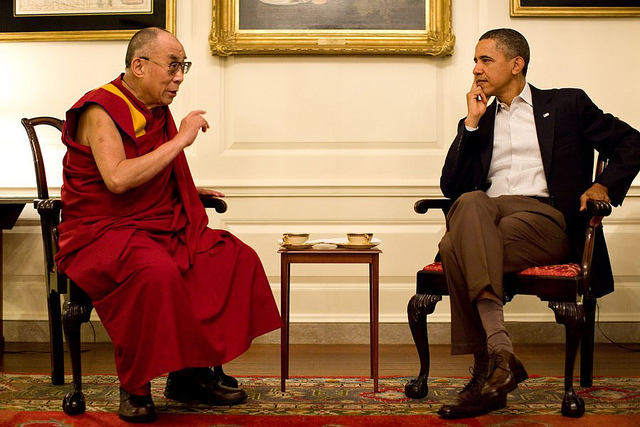
In a move that is sure to irk Chinese officials, US President Barack Obama will appear at an event next week in Washington that will also be attended by the Dalai Lama.
"The president will deliver remarks at the National Prayer Breakfast. This year, the organizers also invited His Holiness the Dalai Lama," said National Security Council spokeswoman Bernadette Meehan. The event will take place on 5 February.
Thursday's prayer is an annual tradition, during which President Obama will have prayer breakfast with clergy from several faiths and talk about the importance of upholding religious freedom.
In a bid to underplay the simultaneous appearance, the White House emphasised that the Dalai Lama and the US President have met three times before this. The officials refrained from mentioning any "specific meeting" between the two.
Earlier, meetings between them were held behind closed doors and outside the Oval Office, "in a move designed to limit the diplomatic fallout with China," AFP reports.
The 14th Dalai Lama is the most important symbol of Tibet's struggle for independence. After a failed uprising against the Chinese rule, he fled Tibet in 1959 and has been living in exile in India ever since.
"The President is a strong supporter of the Dalai Lama's teachings and preserving Tibet's unique religious, cultural and linguistic traditions," Meehan further said, according to CNN. "As he has done in the past, the President will see many religious leaders at the event, but we don't have any specific meeting with the Dalai Lama to announce."
Calling him "a wolf in sheep's clothing", the world's most populous country has accused the Dalai Lama of trying to split Tibet from China.
According to media reports, more than 120 Tibetans have committed suicide via self-immolation in protest against "oppression" and control by China's government. They demand the right to exercise their religion freely.

















